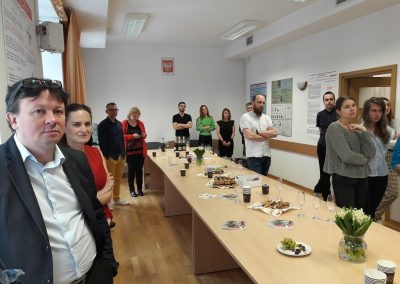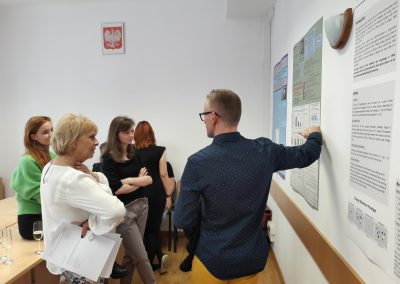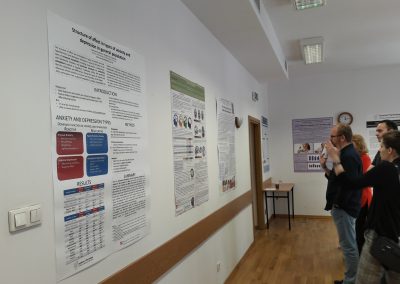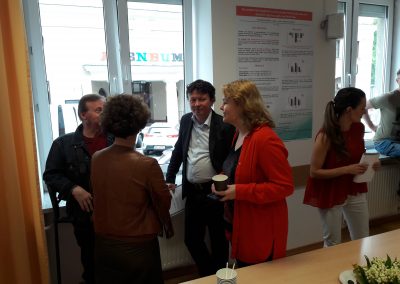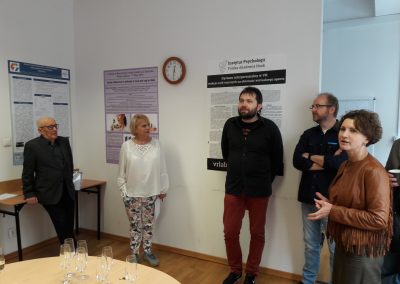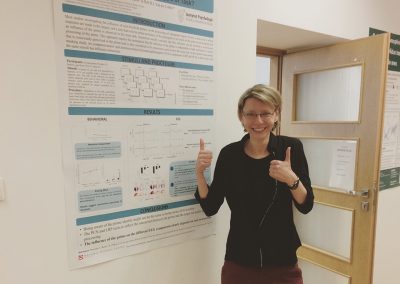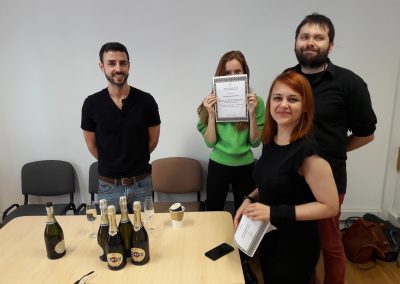Instytut Psychologii PAN zainaugurował w tym roku planowaną jako wydarzenie cykliczne sesję plakatów naukowych prezentowanych przez młodszych pracowników Instytutu. W wydarzeniu uczestniczyli również goście, m.in. Prof. Yorama Bar-Tala, Tel-Aviv University; Prof. Michała Federowicza, IFiS, Dyrektor Szkoły Doktorskiej. Komisja w składzie prof. Małgorzata Fajnowska, prof. Robert Balas oraz prof. Łukasz
Okruszek (przewodniczący komisji) ocenili prace i przyznali nagrody. W tym roku praca Pani mgr Izabeli Szumskiej (Does the Influence of Near-threshold Primes Depend on the Type of Task?) została oceniona najlepiej. Wyróżnienie otrzymały prezentacje: Pani mgr Aleksandry Piejki (The role of a second agent’s response in detecting communicative actions) oraz Pani dr Justyny Świdrak (Influence of Virtual Touch, Homophobia, and Social Status on Economic Decisions among Polish and Catalan Men).
Gratulujemy zwycięzcom!
Poniżej zdjęcia z wydarzenia oraz abstrakt ze zwycięskiego plakatu:
Izabela Szumska - Does the influence of near-threshold primes depend on the type of task?
Abstract: Most studies investigating the influence of near-threshold primes on the processing of subsequent targets involve a main task in which responses are made to the targets, and a task that tests for prime awareness. If the participant is not aware of the prime location/identity but an influence of the prime is observed in the main task, researchers usually conclude that this influence can be ascribed to unconscious
processing of the prime. This approach implies the assumption that the influence of the prime is independent of task instructions: a prime that is consciously perceived in the prime task is also considered to be consciously perceived in the main task. In the current metacontrast masking study, we compared motor- and attention-related electroencephalographic (EEG) components in three tasks with the same stimuli but different instructions, and observed that the influence of the prime on the different EEG components clearly depends on task instructions.

